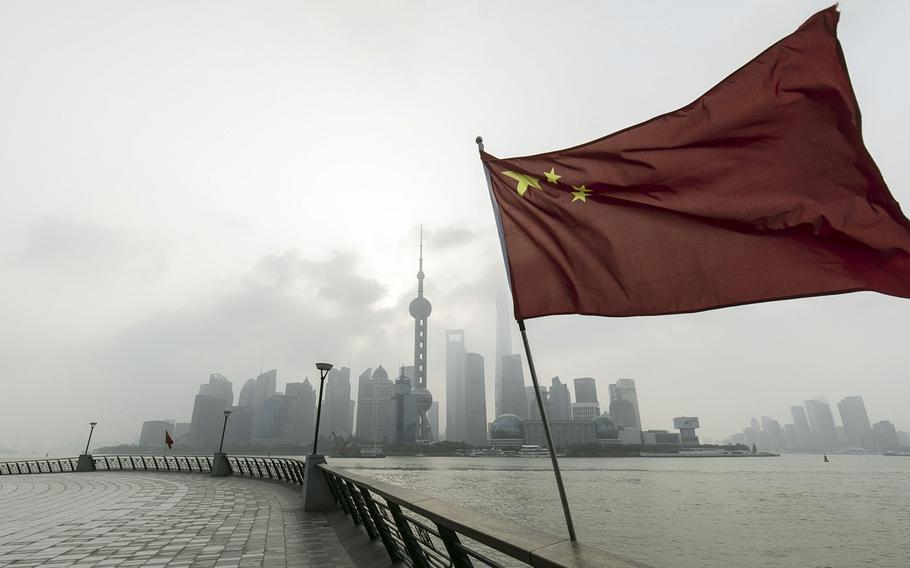Asia-Pacific
China hands Australian writer suspended death sentence in spy case
The Washington Post February 5, 2024
Chinese authorities ordered a suspended death sentence Monday for Australian writer Yang Hengjun, detained in China for more than five years on espionage charges, in a case that underlines the opacity of China’s justice system and threatens a fragile rapprochement between China and Australia.
Yang, 57, a former employee of China’s state security services turned author of spy novels, pro-democracy blogger and academic, was given a death sentence that can be commuted to life imprisonment after two years, according to China’s Foreign Ministry.
Ministry spokesman Wang Wenbin said Yang was found guilty of espionage by Beijing’s No. 2 Intermediate court in a trial that was in “strict accordance with the law.” The sentencing comes after a closed-door trial in May 2021 where details of Yang’s charges were never released. He has denied all charges.
Australian Foreign Minister Penny Wong said her government was “appalled” at the sentence.
“This is harrowing news for Dr. Yang, his family and all who have supported him,” Wong wrote in a statement. “All Australians want to see Dr. Yang reunited with his family. We will not relent in our advocacy.”
Yang, a naturalized Australian citizen since 2002, was detained at Guangzhou Airport in January 2019 while visiting China with his family. He was formally charged with spying on China for another government, but authorities have not disclosed which country.
Yang’s wife and an official from the Australian Embassy were at the hearing Monday, which lasted 30 minutes, according to Chongyi Feng, an associate professor at the University of Technology in Sydney and Yang’s former doctoral supervisor and friend.
Feng spoke with Yang’s wife, Yuan Ruijian, who said she was able to make eye contact with Yang briefly before he was taken away. “He looked very thin and fragile,” Feng said.
Feng condemned the sentencing of his friend and called on the international community, especially the Australian government, to maintain pressure on Beijing.
“He’s [being] punished for his publications advocating universal values like democracy, rule of law, human rights, and he also criticized the government for human rights abuses in China,” he said.
Yang’s attorney Mo Shaoping said his client has 10 days to appeal his sentence. But in China’s court system, where conviction rates are as high as 99 percent, such appeals are unlikely to go anywhere.
During his detention, Yang was blocked for months from seeing an attorney or communicating with family, according to Feng. Australian officials have said they are concerned about reports that Yang has been subjected to solitary confinement and torture.
His health has deteriorated. In a letter to Prime Minister Anthony Albanese before a visit to China in November, Yang’s children said their father had collapsed in prison and pleaded with Albanese to secure his release. They were told Yang had a 10-centimeter cyst growing on his kidney.
The sentence “shines a light on Beijing’s opaque criminal justice system, which the Chinese Communist Party controls,” said Human Rights Watch’s Australia director, Daniela Gavshon. “While the Australian government has condemned the outcome, stronger action is needed.”
Yang’s sentence comes less than four months after the release of Australian journalist Cheng Lei, who had been detained in China for three years. The contrast between the two cases underlines the limits of new efforts to repair strained relations between Canberra and Beijing.
Cheng, an anchor for an English-language state broadcaster, was also found guilty on charges of espionage during a trial held behind closed doors.
And while her release, after lengthy negotiations between the two countries, appeared to reflect the recent stabilization of relations after years of discord, Yang’s severe sentence will inject renewed tension, experts said.
“This just shows you the limits of stabilization,” said James Curran, a history professor at the University of Sydney who recently wrote a book on relations between Beijing and Canberra. Albanese has tried to improve the relationship without making concessions to China, he said, culminating in a trip to Beijing in November. But Yang’s sentence will be a setback.
“We’re dealing with an Australian citizen on a suspended death sentence, facing life imprisonment,” Curran said. “This will undoubtedly cast a dark shadow, a pall, over the management of the relationship going forward. It won’t derail it, but it will certainly inject a real gloom over the Australia-China relationship over the next six or 12 months.”
The sentence was at the extreme end of what was expected and showed that at least part of the Chinese government was “indifferent to its impact on bilateral ties with Australia,” said Richard McGregor, senior fellow for East Asia at the Lowy Institute, an Australian think tank.
“Lately, we’ve seen Australia and China put a floor under the relationship,” McGregor said. “This is a reminder that there is a ceiling, and at times, it’s very low.”
Above all, the sentence seemed to be aimed at pro-democracy activists like Yang, he added.
“The inescapable conclusion is that he’s going to die in prison,” McGregor said. “So somebody somewhere is trying to send a message to people like Dr. Yang.”
Both experts said Australia had few options for how to respond.
Wong told reporters that she had summoned the Chinese ambassador to express her government’s “objection” to the news but stopped short of expelling him. When asked whether Australia would scrap plans to host the Chinese president or premier later this year, Wong appeared to indicate the visit would proceed.
“Stabilization means we cooperate where we can, disagree where we must, and we engage in the national interest,” she said, adding: “Clearly this is an occasion on which we disagree.”

A Chinese flag in front of buildings in Pudong’s Lujiazui Financial District in Shanghai on Oct. 17, 2022. (Qilai Shen/Bloomberg)